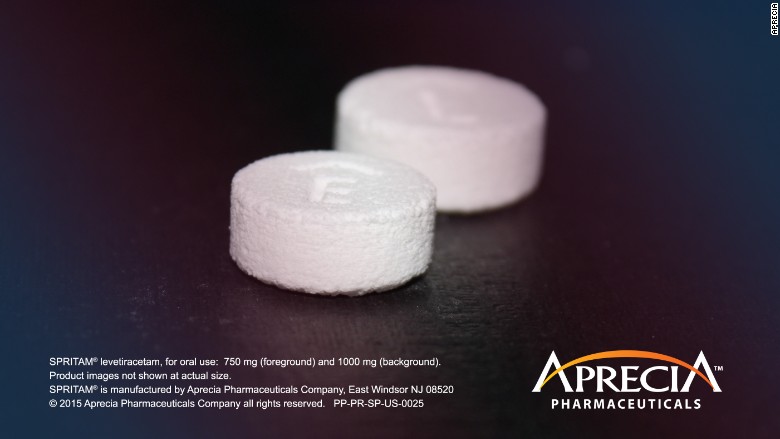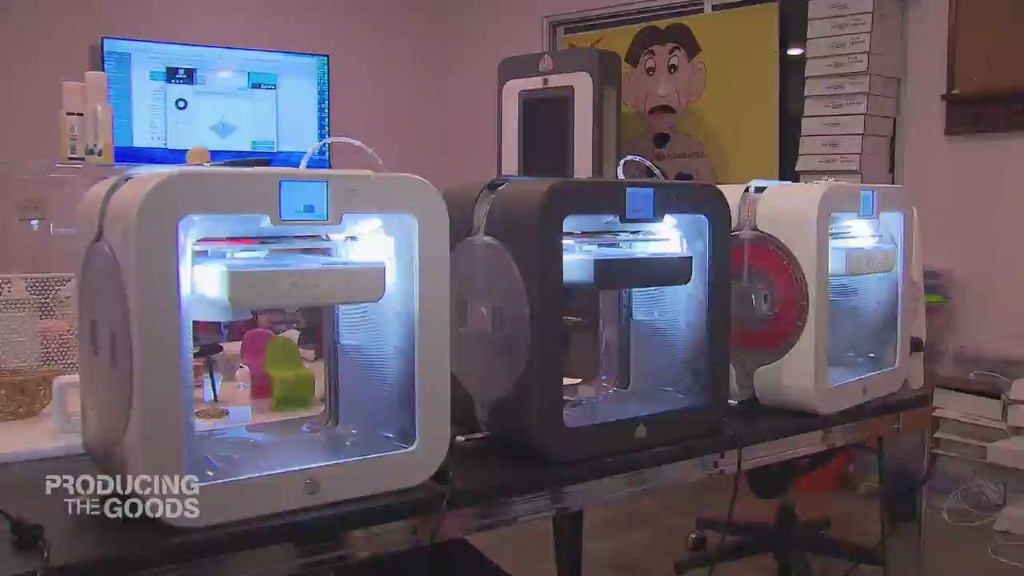
For the first time ever, the U.S. Food and Drug Administration has approved a 3D-printed drug.
The prescription pill, Spritam levetiracetam, will be used to treat certain types of seizures in epilepsy patients.
The drug's manufacturer, Aprecia Pharmaceuticals, says it makes the oral medication through a three-dimensional printing process, which builds the pill by spreading layers of the drug on top of one another until the right dosage is reached.
This technique allows the pill to deliver a higher dosage of medicine -- up to 1,000 milligrams -- while being porous enough to dissolve quickly. These attributes can be particularly beneficial for patients who have a hard time swallowing their medication, and miss doses of treatment, the company says.
"As a result, Spritam enhances the patient experience -- administration of even the largest strengths of levetiracetam with just a sip of liquid," Aprecia said in a statement on Monday. "In addition, with Spritam there is no measuring required as each dose is individually packaged, making it easy to carry this treatment on the go."
Aprecia says it expects the drug to be available early next year for adults and children.
Over the past few years, medical researchers have been experimenting with 3D printing technology for all kinds of applications, such as organ transplants, tissue regeneration, and replacement bones and prosthetics.
Commercial uses have also been growing. Everything from toys to spare mechanical parts, and food and fashion have been made using a 3D printing process.


